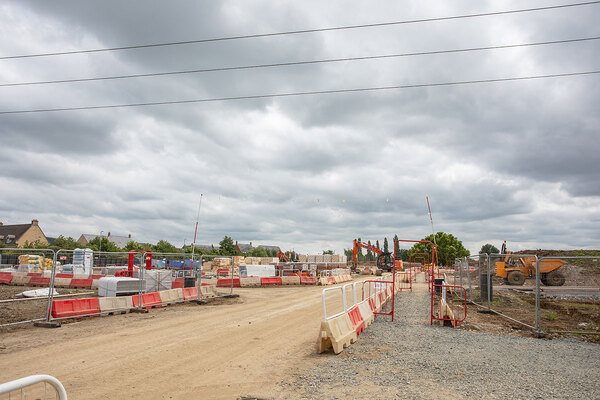First Homes disclosure could do reputational damage and put development at risk, says Homes England
Homes England has refused to publish comparative grant data on First Homes as it believes doing so could cause reputational damage, put development at risk and inflate prices.
The government housing agency’s refusal to publish the data comes after Inside Housing made a request under Freedom of Information (FOI) legislation.
Homes England was asked to provide the figure for the total amount of grant Homes England has awarded in each of the last financial years since the First Homes policy was introduced in 2021.
In each of those years, the agency was asked for the total number of homes that figure was expected to deliver, and how many have been started and completed.
In addition, Inside Housing asked for the comparative figure, in each of those years, for the average grant given for social rent, shared ownership and First Homes.
In its initial response to the FOI, Homes England said: “If information regarding value that has been/will be derived were in the public domain there could be expectations from the public and potential future partners about the value of First Homes scheme development sites and the value of potential works.
“This would mean that prices could be inflated and negotiating positions put at risk. Disclosing this information would project an inaccurate indication on the cost to build homes.
“This would not be in the public interest as it would put development at risk, inflate prices and damage Homes England’s reputation as a partner.”
The agency pointed Inside Housing to its latest data release on affordable housing supply showing completions of First Homes in 2021-22 of 35 units, and 1,058 in 2023-23.
Starts were reported at 119 and 231 respectively. A sector source with knowledge of the First Homes scheme told Inside Housing they were unsure how releasing the comparative grant level would lead to development risk.
However, the agency maintains that the potential harm caused by the release of this information may include driving reduced competition, causing reputational damage to Homes England or encourage the wider financial market to behave differently.
In explaining the grant process, the agency said its allocation is subject to a robust assessment process that includes a detailed value for money review.
The average grant rates by tenure are used to give an indication on what support is available to its partners from Homes England funding, and grant rates are confirmed after review of extensive financial information and give an indication on the costs involved to build homes.
The policy offers first-time buyers a minimum discount of 30% against market value limited at properties below £250,000 – or £420,000 in Greater London. In some areas, the government will allow minimum discounts to be raised to 40% or 50% if councils can demonstrate a need for this.
The government has said that First Homes should account for at least 25% of affordable housing units delivered by developers through planning obligations, chiefly through Section 106.
However, at least one council in London has decided not to implement the national policy as it believes the initiative will “not be affordable to median-income residents”.
Camden Council confirmed last year that it “will not seek the delivery of First Homes in Camden”.
Peter Denton, chief executive of Homes England, admitted last week that “times are tough” across the sector after a release that showed the number of Homes England-backed starts had fallen by 23%.
Sign up for our development and finance newsletter
Already have an account? Click here to manage your newsletters












